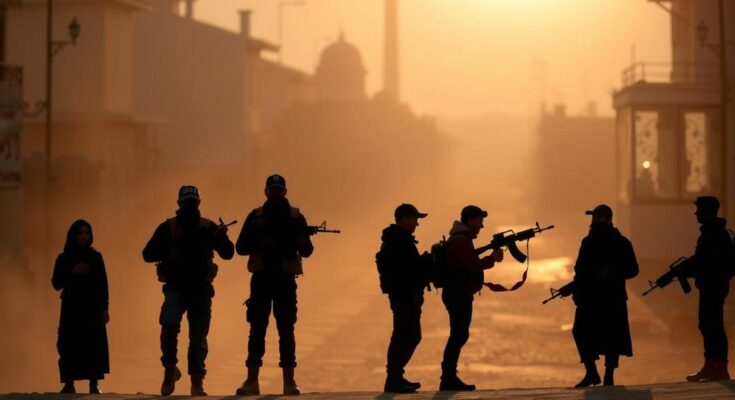The United States is urgently working on a plan to mediate a ceasefire between Israel and Hezbollah, in collaboration with France and other nations, as concerns grow over escalating hostilities. Prime Minister Netanyahu has approved American efforts, contingent upon the return of displaced civilians to northern Israel. Discussions are ongoing at the United Nations ahead of an emergency Security Council meeting.
The United States is actively pursuing a plan aimed at mediating a ceasefire between Israel and Hezbollah, amidst escalating concerns over the potential for a broader conflict. According to three informed sources, American officials are collaborating with representatives from France and other nations to forge a diplomatic agreement that would halt hostilities along Israel’s northern border while simultaneously reinitiating ceasefire and hostage negotiations concerning Gaza. This diplomatic effort comes at a time when Israel’s Chief Military Officer has indicated preparations for a possible ground incursion into Lebanon. Israeli Prime Minister Benjamin Netanyahu has reportedly sanctioned his administration to engage in negotiations led by the United States, contingent upon the stipulation that any arrangement must facilitate the return of Israeli civilians to their homes in northern Israel. Senior White House adviser Amos Hochstein is reportedly involved in these efforts; however, it has been confirmed that American officials are not in direct communication with Hezbollah. While specific details concerning the proposed plans remain undisclosed, discussions are taking place among diplomats in New York in conjunction with the United Nations General Assembly meetings scheduled for this week. A U.S. official disclosed recently that the administration is nearing the finalization of a plan to de-escalate tensions between Israel, Hezbollah, and Hamas, emphasizing the necessity of maintaining confidentiality to avoid jeopardizing the delicate negotiations involving multiple parties. The development of these plans may feature prominently in an emergency United Nations Security Council meeting convened by France later this week. During an appearance on ABC’s „The View,” President Joe Biden suggested ongoing efforts to establish a ceasefire in Lebanon, potentially facilitating further peace dialogues in the region. “There’s a way to do it, and they have a possibility… if we can deal with a ceasefire in Lebanon, that it can move into dealing with the West Bank, but we also have Gaza to deal with,” he stated. Secretary of State Antony Blinken emphasized the U.S. commitment to a plan enabling displaced Israeli and Lebanese citizens to return home, underlining that this would necessitate a diplomatic agreement leading to increased security along the border. He articulated, “It would be through a diplomatic agreement that has forces pulled back from the border, create a secure environment, people return home. That’s what we’re driving toward. Because while there’s a very legitimate issue here, we don’t think that war is the solution.”
The current geopolitical climate surrounding Israel and Hezbollah reflects heightened tensions that threaten regional stability. The United States, recognizing the implications of a potential escalation in hostilities, has initiated a diplomatic response aimed at mediating the situation. This initiative not only addresses immediate conflicts but also seeks to mitigate the broader humanitarian crises stemming from ongoing violence in the region.
In conclusion, the United States is embarking on crucial diplomatic efforts to mediate a ceasefire between Israel and Hezbollah, with the intent to stabilize the region and address humanitarian concerns. The involvement of multiple nations and high-level discussions underscores the complexity of the situation and the urgent need for a resolution. The developments surrounding these negotiations will remain under close scrutiny as the international community seeks effective pathways toward peace.
Original Source: www.cnn.com




